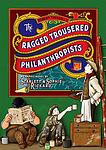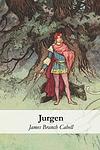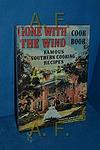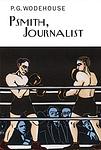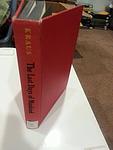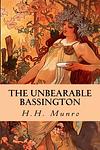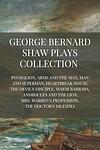The Greatest "Fiction, Satire" Books From 1910 to 1919
Click to learn how this list is calculated.
This list represents a comprehensive and trusted collection of the greatest books. Developed through a specialized algorithm, it brings together 286 'best of' book lists to form a definitive guide to the world's most acclaimed books. For those interested in how these books are chosen, additional details can be found on the rankings page.
Genres
Satire is a genre of literature that uses humor, irony, and exaggeration to criticize and ridicule human vices, follies, and shortcomings. It is a form of social commentary that aims to expose the flaws and absurdities of society, politics, and culture. Satirical books often employ sarcasm, wit, and parody to challenge the status quo and provoke thought and reflection in readers. Satire can be both entertaining and thought-provoking, and it has been used throughout history as a powerful tool for social and political critique.
Countries
Date Range
Reading Statistics
Click the button below to see how many of these books you've read!
Download
If you're interested in downloading this list as a CSV file for use in a spreadsheet application, you can easily do so by clicking the button below. Please note that to ensure a manageable file size and faster download, the CSV will include details for only the first 500 books.
Download-
1. The Metamorphosis by Franz Kafka
The book tells the story of a man who wakes up one morning to find himself transformed into a giant insect. His transformation causes him to lose his job and become ostracized from his family, who are horrified and repulsed by his new form. As he grapples with his new reality, he becomes increasingly isolated and starts to lose his sense of humanity. The book explores themes of alienation, guilt, and identity, and is a profound examination of the human condition.
-
2. The Custom of the Country by Edith Wharton
The book follows the ambitious and cunning Undine Spragg, a beautiful Midwestern girl who marries her way into New York high society. Undine's insatiable desire for wealth, status, and comfort leads her through a series of marriages and divorces, each time climbing higher on the social ladder. However, her ruthless pursuit of success and disregard for social norms ultimately leave her feeling empty and dissatisfied. The novel offers a critique of American society and its values during the early 20th century.
-
3. The Ragged Trousered Philanthropists by Robert Tressell, Peter Miles
"The Ragged Trousered Philanthropists" is a semi-autobiographical novel that explores the lives of a group of working men in the fictional town of Mugsborough, and their struggle to survive in a society marred by poverty and exploitation. The story primarily focuses on a socialist protagonist who endeavors to enlighten his fellow workers about capitalism's inherent flaws and the necessity for social change, all while battling the dire conditions of his own life. The novel is a critique of capitalism and a call for a socialist revolution.
-
4. Zuleika Dobson by Max Beerbohm
"Zuleika Dobson" is a satirical novel set at Oxford University, where the beautiful Zuleika, a conjurer by profession, arrives and captivates the male population, including the Duke of Dorset. The Duke falls madly in love with her, but she remains indifferent to his feelings. In a tragic twist, the Duke decides to commit suicide to prove his love, starting a chain reaction among other male students. The novel is a critique of Edwardian Oxford and the foolishness of falling victim to unrequited love.
-
5. The Magnificent Ambersons by Booth Tarkington
"The Magnificent Ambersons" is a Pulitzer Prize-winning novel set in the early 20th century that explores the dramatic changes brought about by the industrial revolution in America. It follows the decline of the once-prosperous Amberson family as their fortune and influence wane with the rise of new money and modern technology. The story is centered around the prideful and spoiled George Amberson Minafer, whose arrogance and inability to adapt to the changing world lead to his downfall.
-
6. Petersburg by Andrei Bely
"Petersburg" is a symbolist novel set in the heart of Russia during the 1905 Revolution. It follows the story of a young man who is given the task of assassinating his own father, a high-ranking government official, by a radical political group. The narrative is a complex mix of politics, family drama, and philosophical introspection, all set against the backdrop of a city in turmoil. The novel is renowned for its vivid and poetic descriptions of the city itself, making Petersburg as much a character in the story as the people who inhabit it.
-
7. Jurgen by James Branch Cabell
This novel follows the comedic adventures of Jurgen, a pawnbroker who embarks on a fantastical journey through mythical realms after his wife is mysteriously taken from him. With a blend of satire, romance, and philosophical musings, the protagonist navigates encounters with gods, monsters, and legendary figures, all the while wielding his wit and cleverness to manipulate situations to his advantage. The narrative, rich in allegory and literary allusions, explores themes of desire, perception, and the nature of reality, challenging societal norms and the conventions of romantic quests with humor and irony. Through his quest, Jurgen seeks not only to recover his lost wife but also to understand the complexities of life and love.
-
8. South Wind by Norman Douglas
Set on the fictional Mediterranean island of Nepenthe, the narrative unfolds as a diverse cast of eccentric expatriates and natives engage in philosophical discussions and indulge in the hedonistic pursuits characteristic of the island's culture. The central theme revolves around the clash between the island's permissive morals and the more conservative values of the outside world, with the plot meandering through various anecdotes and character studies rather than following a traditional linear progression. The novel is a satirical exploration of human nature, freedom, and the search for happiness, all set against the backdrop of a sun-drenched, idyllic landscape that seems to encourage both personal reflection and the shedding of societal constraints.
-
9. Tarr by Wyndham Lewis
"Tarr" is a novel set in pre-World War I Paris and follows the story of an English artist, Frederick Tarr. The narrative explores the complex relationships between Tarr and his friends, including his German rival Kreisler and the woman they both love, Bertha. The novel delves into themes of modernism, masculinity, and the clash of cultures, while also providing a satirical critique of the bohemian lifestyle in early 20th century Paris.
-
10. Psmith, Journalist by P. G. Wodehouse
In this humorous novel, the protagonist, Psmith, takes over a friend's newspaper while he is away. Psmith transforms the paper from a mundane health advice column into a platform for social justice, exposing the corrupt practices of landlords and politicians in New York City. The novel follows his adventures and misadventures in journalism, complete with thrilling chases, gangsters, and witty banter.
-
11. The Loyal Subject by Heinrich Mann
"The Loyal Subject" is a satirical novel set in Germany during the reign of Kaiser Wilhelm II. It follows the life of a petty bureaucrat who is obsessively devoted to the Kaiser and the state, despite the fact that his loyalty is constantly abused. His blind obedience and the absurdity of the system are used to critique the militarism and authoritarianism of the period. The story is a powerful indictment of the dangers of unchecked nationalism and the dehumanization that can result from excessive obedience to authority.
-
12. The Last Days of Mankind by Karl Kraus
"The Last Days of Mankind" is a satirical play that provides a critical commentary on the socio-political climate during World War I. The narrative presents a stark portrayal of the absurdity of war and the destructive forces of propaganda, bureaucracy, and nationalism. The author uses a variety of literary techniques, including parody, satire, and direct quotes from contemporary sources, to highlight the folly and tragedy of war. The play is known for its unique style, rich language, and its profound critique of society and culture during a time of great upheaval and conflict.
-
13. The Unbearable Bassington by Saki
This novel is a satirical exploration of Edwardian society, focusing on the life of Comus Bassington, a charming but irredeemably selfish and idle young man. Set against a backdrop of London's high society, the narrative delves into Comus's frivolous and extravagant lifestyle, which leads to his eventual estrangement from his mother, who is both indulgent and exasperated by her son's antics. As Comus navigates through various social escapades, romantic entanglements, and financial ruin, the story unfolds to reveal the stark realities of class, social expectations, and the consequences of personal recklessness. The novel's sharp wit and poignant critique of societal norms culminate in a conclusion that is both tragic and reflective of the characters' inescapable fates within the rigid structures of their world.
-
14. The Vatican Cellars by Andre Gide
The novel unfolds as a satirical adventure, delving into the complexities of faith, deception, and the human quest for meaning. Set against the backdrop of early 20th-century Europe, it follows the journey of Lafcadio, a young man whose paths cross with an eclectic mix of characters, including anarchists, aristocrats, and religious figures, each embroiled in their own pursuits of ideology, power, and salvation. Central to the plot is a meticulously planned hoax involving the Pope, which spirals into a series of events that challenge the characters' beliefs and intentions. Through its intricate narrative and sharp critique of societal norms, the book explores themes of morality, authenticity, and the absurdity of human endeavors.
-
15. Heartbreak House by George Bernard Shaw
Set against the backdrop of pre-World War I Britain, the play unfolds in the eccentric household of Captain Shotover, an old sea captain turned inventor. The narrative explores the lives and loves of the inhabitants of the so-called "Heartbreak House," who represent a microcosm of British society at the time. As they engage in witty banter and romantic entanglements, the characters remain blissfully unaware of the looming external threats that will soon engulf Europe. The play serves as a social critique, highlighting the idle, ineffective intellectualism and lack of moral direction among the British cultural elite, which Shaw saw as contributing to the country's decline and the catastrophic war on the horizon.
-
16. Seven Men And Two Others by Max Beerbohm
"Seven Men and Two Others" is a collection of satirical essays that blend fact with fiction, offering a whimsical critique of literary and artistic figures from the late 19th and early 20th centuries. The book profiles a series of eccentric and often outlandish characters, each with their own peculiarities and idiosyncrasies, who are purportedly known to the narrator. Through these vivid and imaginative portraits, the work explores themes of vanity, ambition, and the foibles of human nature, all delivered with a sharp wit and a subtle, ironic humor that both parodies and pays homage to the culture of the time.
Reading Statistics
Click the button below to see how many of these books you've read!
Download
If you're interested in downloading this list as a CSV file for use in a spreadsheet application, you can easily do so by clicking the button below. Please note that to ensure a manageable file size and faster download, the CSV will include details for only the first 500 books.
Download

